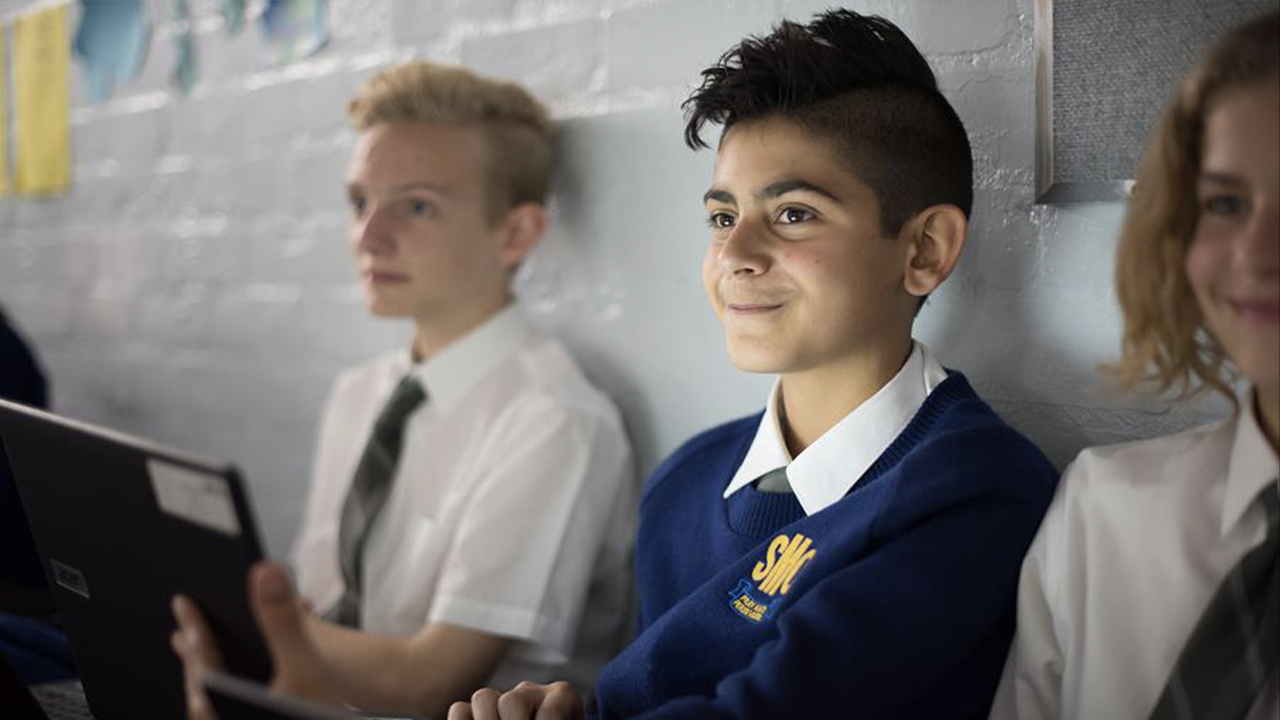Exploring STEAM in BRIDGE: Creative Actions through Citizen Science
Through our BRIDGE School Partnerships Program we are creatively maximising teaching and learning outcomes across the Asia-Pacific.

The Asia Education Foundation (AEF) recently partnered with Kopernik and CSIRO in Indonesia to offer Australia-Indonesia BRIDGE School Partnerships with an exciting new opportunity.
Partnering with the CSIRO, Kopernik and Pulau Plastik, the AEF BRIDGE School Partnerships Program recently delivered the 'Exploring STEAM in BRIDGE: Creative Actions through Citizen Science,’ a new digital learning program for Australia-Indonesia BRIDGE schools.
Driven by the core BRIDGE pillars of collaborations in school partnerships, expanding intercultural learning, amplifying youth voice and pedagogical exchange and leadership, the online program focused on empowering students to make positive impacts in their local and global communities.
Incorporating STEAM - an acronym for the fields of science, technology, engineering, arts and math, together with the topics of environmental sustainability and the United Nation’s Sustainable Development Goals, the program was delivered across three sessions in November.
In the first session, educators were briefed on the program by AEF education coordinator Brendan Hitchens and were introduced to Amelia Fyfield, Country Director Indonesia at the CSIRO, Ewa Wojkowska, Co-founder and COO of Indonesian social enterprise Kopernik, and Gede Robi, the lead vocalist and guitarist of the band Navicula and host of the documentary Pulau Plastik (Plastic Island).
Participants heard about youth lead initiatives in the region, such as Bye Bye Plastic Bags (Bali) and Straw No More (Queensland) and explored the term STEMpathy - embedding human compassion and empathy into STEM education.
Image: Participants of the Exploring STEAM in BRIDGE: Creative Actions through Citizen Science workshop connect via Zoom to collaborate with in-country experts.
In the second session, students watched Pulau Plastik, a documentary that highlights the pollution of plastic waste in Bali. Exploring the facts behind the overflow of plastic waste that ends up in landfills, in the sea and in our food, the film demonstrates different ways of getting environmental messages across to the general public, for example through song, art installations, scientific research, campaigning and even spirituality. As Robi explains in Episode 1: Segara Kerith (In Harmony With Our Oceans), “the oceans don’t see national borders. The entire word feels the effects of pollution.”
Students were then set a number of challenges inspired by the film, such as turning pollution into a solution and upcycling a plastic bottle into a new product. Over the next fortnight, some of their inventions included a plastic bottle terrarium, a motorised helicopter, a money box and a dustbin.
This video format is not supported
Video: Watch a student participant of the Exploring STEAM in BRIDGE: Creative Actions through Citizen Science workshop turn a plastic bottle into a terrarium.
In the third and final instalment, students and teachers came together for a question-and-answer session with the advocates. As part of the discussions, Amelia explained how the CSIRO has been working with partners in Indonesia for over 40 years to solve challenges through innovative science and technology. Ewa encouraged students to follow their interest and passions to make a difference and Robi told students how the Arts can be used to spread a positive and powerful message, before treating everyone to a special live acoustic performance of the song Lagu Sampah.
This video format is not supported
Video: Watch Gede Robi, the lead vocalist and guitarist of the band Navicula, perform a special live acoustic performance of the song Lagu Sampah.
Participants put their understanding of global issues into practise
Inspired and brimming with ideas, participants then broke up into smaller groups and discussed collaborative partnership activities and projects on the theme. Between teachers and students, some of the ideas included surveying for plastic debris in the local area and graphing results, writing the lyrics to a song about pollution, decorating school rubbish bins with art to encourage recycling, finding plastic alternatives and innovating products such as straws, and creating a media campaign such as a school newspaper and social media accounts to draw attention to the issues.
Asia Education Foundation provides support for educators across Australia and Asia-Pacific to create a collaborative and sustainable partnerships and to provide access to new pedagogical knowledge and skills for educators that in turn contributes to improved Intercultural understanding.
Over the last decade, AEF has established hundreds of partnerships where educators increase their knowledge and adopt new practices through the implementation of teacher-to-teacher and classroom-to- classroom collaboration.
Please visit our BRIDGE School Partnerships webpage for more information on the program and future webinars.
The BRIDGE School Partnerships Program is supported by the Australian Government and implemented by the Asia Education Foundation at The University of Melbourne.